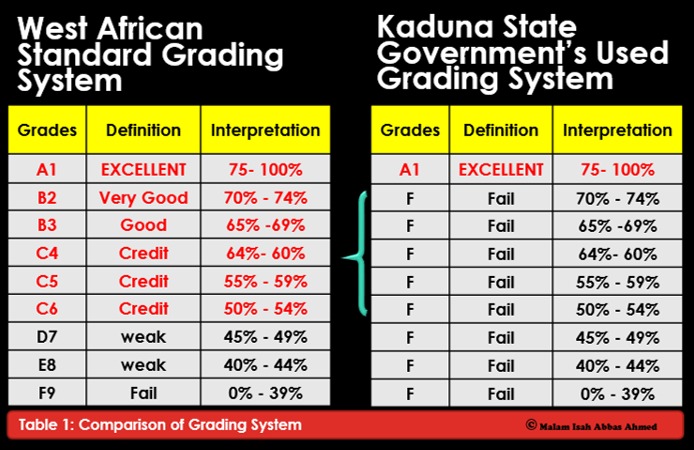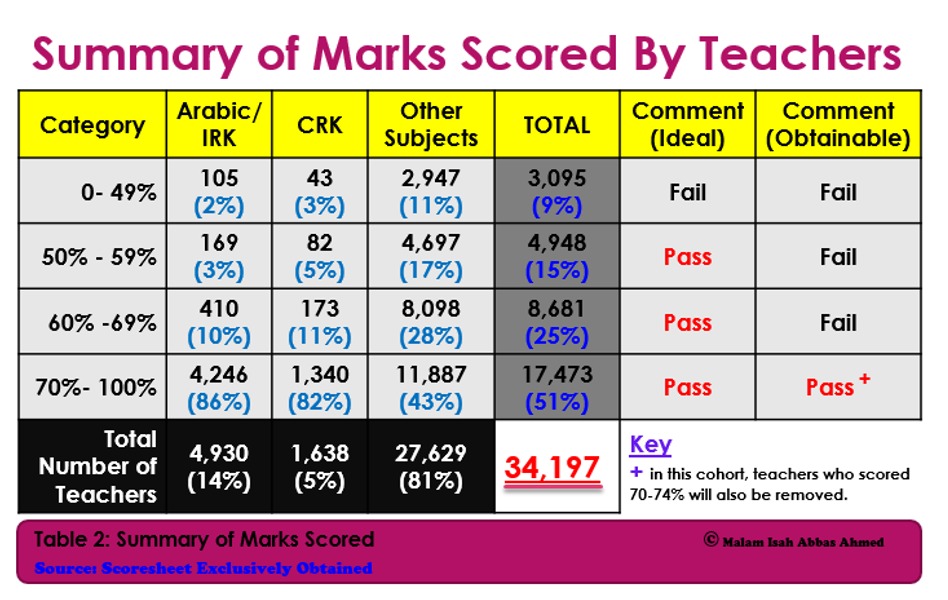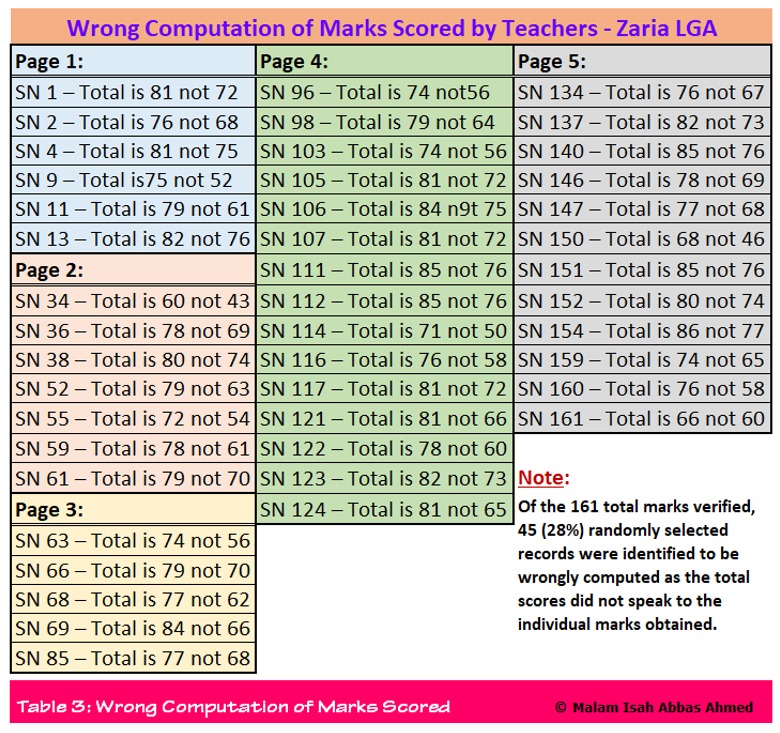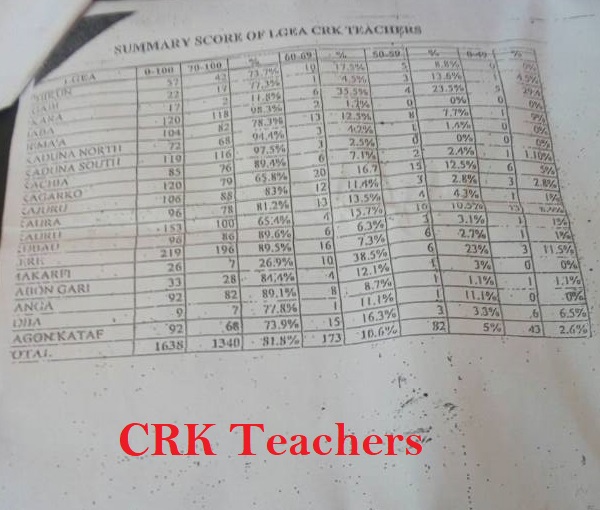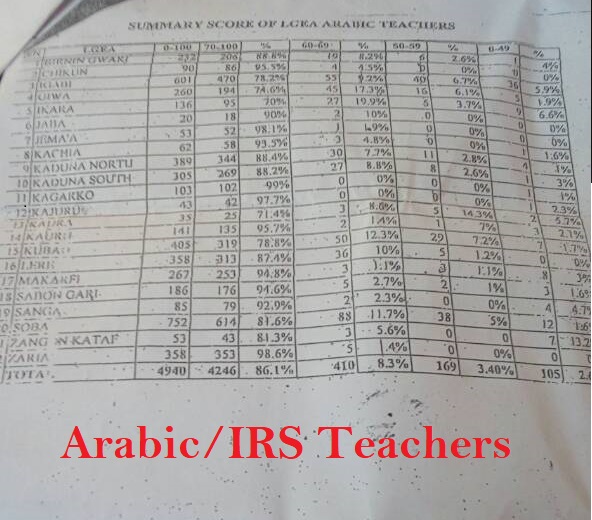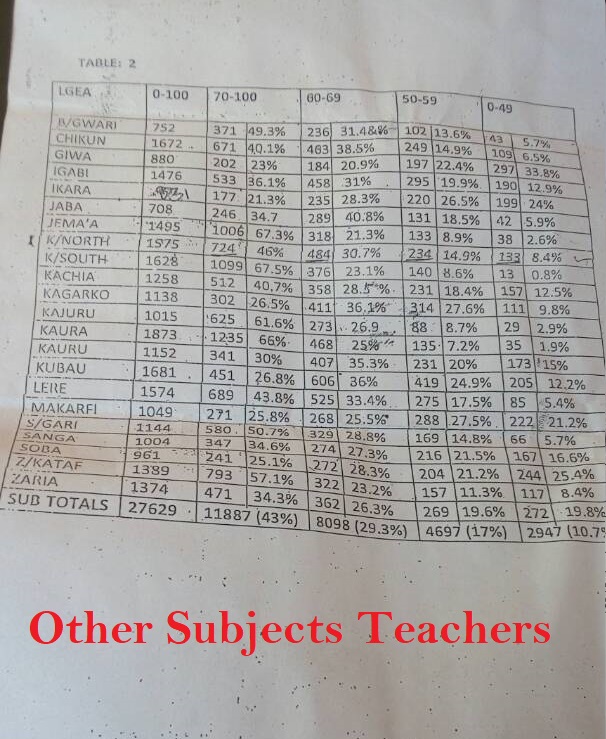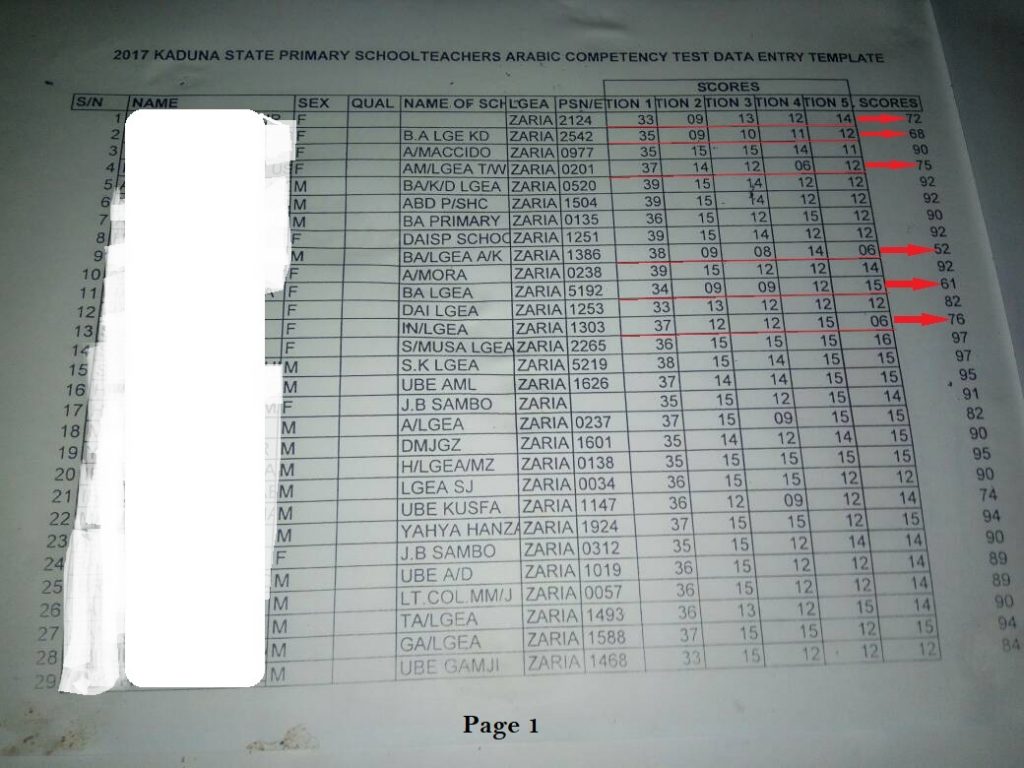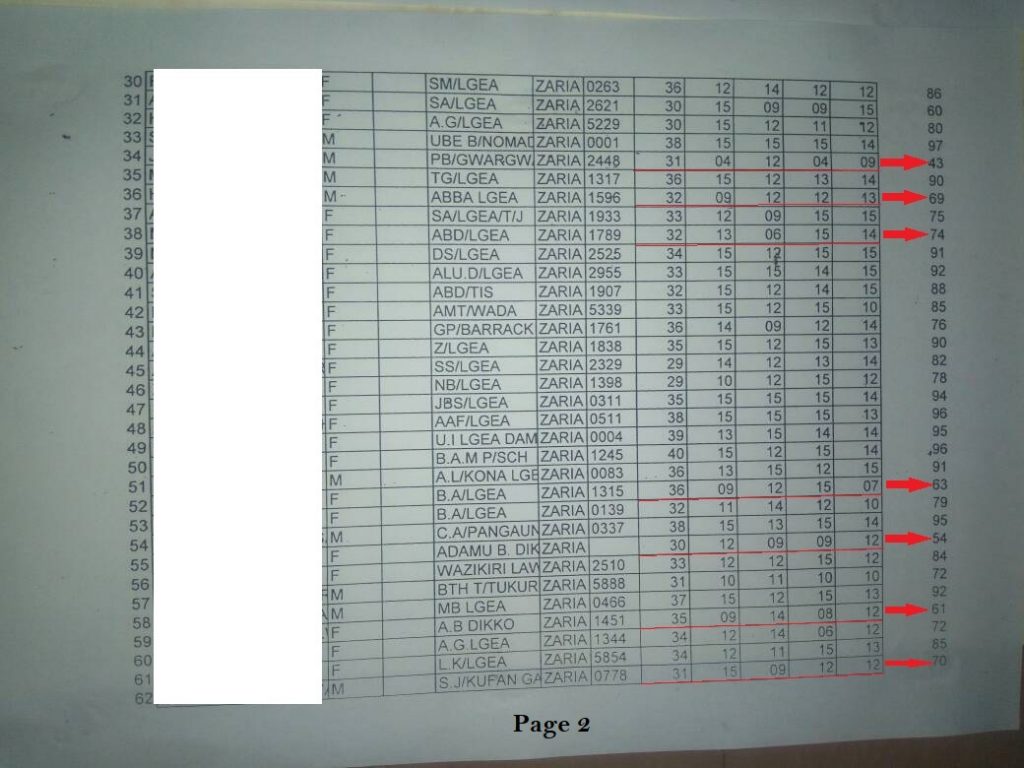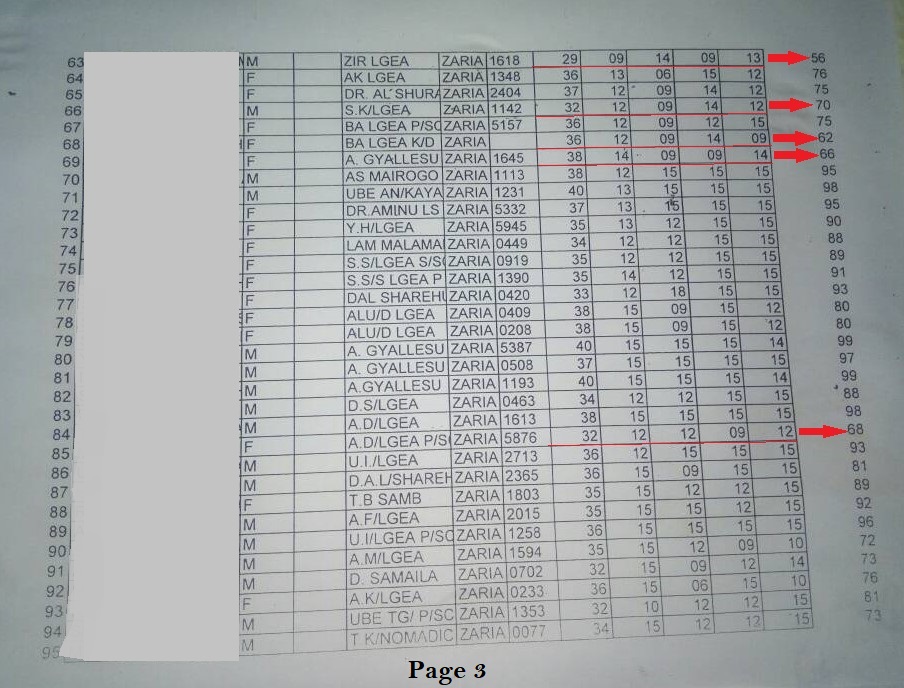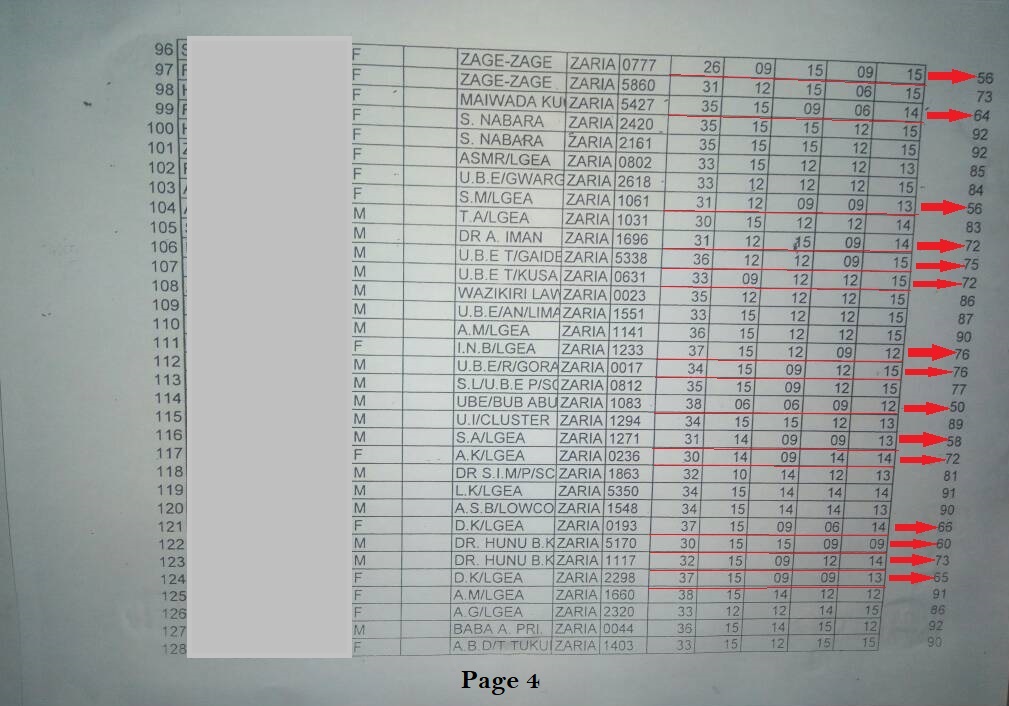The interview, granted to leading Hausa
newspaper, Rariya, was first published by PREMIUM TIMES in 2013. Mr. Ekwueme
spoke about his life, his politics, his struggles and his visions for Nigeria.
Excerpts:
How was growing up like in Oko in
the 30s?
Well, Oko was
a very rural village but I didn’t actually grow up there because my father was
a church teacher for the Church Missionary Society (CMS) which is now the
Anglican Church and at the time they were called CMS Agents that is Church
Missionary Society Agents. Today, they call them Evangelists. They were
responsible for going to rural villages where Christianity had not penetrated
and primarily to set up Christian churches so although officially I am from
Oko, I was not actually born in Oko. I was born in a village about 11 miles
east of Oko call Uga because sometimes my father was in charge of Emmanuel
church at Uga so I was born within the church premises and from there, after I
was four, my father was transferred to another town Nkpologwu, to Emmanuel Church
Nkpologwu.
There, he
stayed for just one year before he was transferred again to another church, St
Jude Adazi Ani where we stayed two years and where my younger brother,
Professor Laz Ekwueme, the present traditional ruler of Oko was born. After that,
we moved to a place called Oba which is the remotest part of the state that my
dad had to serve. He was the pioneer missionary there. He set up the first
church and assimilated the first Christians and after two years there, we came
back to Oko. That was when we started living at Oko from 1940 generally and
that was at the age of seven.
It was then a
very rural setting. And from Oko, I went to a primary school in a neighbouring
town which was about four miles away and as we moved on foot every day until 2
years after that- February, 1942, my father died and my aunt then asked me to
come and live with her. When my father died my mother had me and the
traditional ruler Professor Laz and another Prof, the surgeon, Obumneme, and
after my father died my mother delivered twin girls so the burden of looking
after three of us and the twins was too much for her and her husband. So, my
aunt asked me to come and live with her which served two purposes.
First, it
relieved my mother the burden of having to look after me and secondly, I was
able to keep my aunt company because she was living alone. But from there, to
continue going to school there meant a journey of five and half miles every
morning on foot which was very strenuous. But it toughened me because we used to
leave in the morning as early as five o’clock and get to a stream on our way
and we stop there to have our morning bath and from there we start walking from
that stream to the school went uphill and it was very very strenuous. And you
have to get to school on time because when you come late you know you are in
trouble. When we close, we start trekking back five and half miles and when I
get back to my aunt’s place, I had to go to the stream to fetch water for us to
use and come to help cook the evening meal. It was very strenuous but it was
useful as I said it toughened me and I was able to cope with tough situations
later in life.
From there to Kings College. How
did you get to King’s College from a village?
That’s a good
question. Fortunately, my elder brother had gone into DMGS, Denis Memorial
Grammar school at Onitsha. In fact, my dad just settled him in at the Grammar
school in January and he died in February. So, he was the one who suggested
that I should take entrance examinations to what he considered good secondary
schools in Nigeria and Kings College was one of them. He mentioned Government
College Umuahia which was also a good school and then, of course, there was
DMGS, the one he was attending, there was Methodist College Uzuakoli, Hope
Waddel College Calabar and so on.
And the first
examination that came up was that of King’s College. And that was June 1944,
and then a month and half after we did the examination I was asked to come for
the interview. They sent a warrant to enable the child (me) travel by train to
Enugu at the age of eleven.
And then you settled in Kings
College?
Yes, we did
the interview and I was given a scholarship…four of us were granted
scholarships and only 25 were taken to class one the following year.
Officially, we would have started in September but it was during the war so we
started in January 1945.
Who were your contemporaries at
Kings College?
Out of a
class of 25, we were only (those of us still alive today) about seven. We were
four from the east and that four out of coincidence were distributed among the
4 provinces. I was the only one from Onitsha province, and there was Gogo
Nzeribe the trade unionist, who was from Owerri Province, there was Okon from
Calabar province and there was another person from Ogoja Province. There were
four of us from the East, twenty from the West and only one from the North,
Bashir from Ilorin.
In the class
above us, we had Odimegwu Ojukwu and his first cousin, Emmanuel Ojukwu, and
another boy who later became the President of the Nigerian Bar Association. We
had quite a few bright people like Professor Olaitan who was at University of
Benin and who later became an Arch Deacon. There was Adesugba who later became
the Deji of Akure and others.
Was it after High school that you
went to study architecture in the US?
Yes, it was
after Secondary school. I did my school certificate in December 1949 and we
finished from King’s College in June 1950. Then in December 1950, I did a
Higher School Certificate examination which is called A Levels now in Arts
subjects- English Latin and history. Then, when the results came out the
following month and I passed, the Principal who was my mentor, had gotten me
back to the school to work as Technical Assistant and Science Instructor to the
junior classes.
While I was
teaching there, in December 1951, I took another Higher School Certificate in
the Sciences- Physics, Chemistry and Mathematics. It was the Principal who
suggested that I should study Architecture because it was a field in which
there were no Nigerians at the time and that with my wide background and my
ability in arts, I should make a good architect. Fortunately, then we set up
that year and they asked for arts students in North America in the secretariat
in Broad Street and for the first time, Nigerians were eligible to apply for a
scholarship under the Fulbright Act sponsored by the Department of State to
exchange students.
That year,
four Nigerians were awarded this scholarship but because we were a colony, we
were not eligible to be awarded the scholarship as Nigerians so we were awarded
the scholarship as part of the United Kingdom contingent. So, they took two of
us undergraduates and two postgraduates but they took us first to England where
they took us round all the scenic places: English speaking places like
Cambridge, Oxford, the Theaters, Birmingham and opera and so on. After they
thought we were sufficiently drilled, we went across to the United States.
While you were there, you were
eclectic in your choice of study-philosophy, sociology, law. Why did you take
all these diverse courses and you had degrees in all of them?
First, I had
some crucial courses I had passed before coming into the full programme. I had
exemptions from Intermediate Bachelor of Arts degree from London University so
I’d registered for the London University BA degree before I got the scholarship
to come and study Architecture. While I was studying Architecture… well, the
American system then, coursework, we had to have a certain number of credits to
get a degree and because I had done those Higher school in arts, English and
History and sciences Physics, chemistry and mathematics, I was exempted from
English language courses. I was exempted from mathematics courses for
architects even from the sight and sound which you had to do in preparation for
mechanical equivalent of buildings in architecture.
But having
been excepted from all these, I think they didn’t give me credits for that so I
still had to make up to get the required number of credits required for
graduation. So, I used all those open spaces to concentrate on my electives-
philosophy, sociology and so on. Within three years of my coming in, I took my
London University External BA examination in History, Philosophy and
Constitutional law. That was in June 1955 and in August that year, that’s 3
months after, because I had accumulated enough courses in sociology, I was
eligible to get a degree in sociology.
Is it true that you were the
first to establish an architectural firm in Nigeria?
January 2
1958, Ekwueme Associates Estate and Town Planning was registered and that was
the first architectural firm in Nigeria.
You said that when you came back
after your PhD, you joined politics. How did that happen?
At a dinner
we had in Glasgow after my PhD, there were many Nigerians there. Around
September or so, the military government had lifted the ban on politics. Those
who came from Nigeria were intrigued by the change from military to the
civilian administration and at the dinner, they all said that I should come
back and contest for the governorship of Anambra state.
I gave two
conditions. First and foremost, I had spent 24 months doing this work and that
I was really exhausted…really exhausted because during the research work and
preparing for my LLB examinations, it took a lot away from me. And I shuttled
back and forth to Nigeria 13 times during those 2 years. Although I had
partners who were running the firm but still those people who gave us their
commissions asked of me because they knew me. So, I had a personal responsibility
to ensure that those projects were properly handled so I travelled 13 times.
So, I said first I need to rest. After that, the next condition was that I
didn’t have the resources for campaign and won’t be able to rush into the
campaign with that kind of energy. What they told me was ‘don’t worry. We will
take care of all that’. That I should just accept the nomination.
I came back
to Nigeria in November and by the time I came back, they had formed the parties
and it was four days before the primaries but however, they postponed it for
another one week. So, I came in 11 days to the primary nomination. And true to
the promise they made, they had mobilised people. And many of those who had
indicated interest to run all stepped down and said they would support me.
Anambra state
as it was then composed, had polarisation between its north which is now Enugu
State and south which is presently Anambra and people from Enugu state already
felt they were dominated by people in what is Anambra now. And CC Onoh wanted
to be governor and from my own part the state, there were three of us. We sat
down and everyone stepped down except Chuba Okadigbo. So, we came to the
primaries and there were three of us coming from what was then Anambra and only
one coming from Enugu so the result was a foregone conclusion. Then we went to
Casino Cinema in Lagos, on December 10, for the presidential primaries. It was
there that Alhaji Shehu Shagari was nominated after Maitama Sule stepped down
so we didn’t go for a second ballot.
There were
general arrangements the party had agreed to before I came back from the United
Kingdom. The north was to produce the president and they were six of them
contesting for it. Four western states would produce the chairman of the party
and what is now the South-east would produce the vice president and what was
called southern minorities or the south-south today should produce the senate
president. So, after the presidential primaries at Casino Cinema, matters came
up for the selection of Vice President. The committee that was set up by the
party to go to Anambra and Imo to find out whom they thought would be able to
partner with Alhaji Shehu Shagari in the contest of the country went around but
didn’t quite conclude.
In fact they
were to do their work between that time and to finish by December 26th or 27th
so what happened was that because I was not mentally prepared for the post of
vice president, what I came back to contest was that of governor. So, on the
21stDecember, while the committee was going round, I left the country with my
family. We went to Douala in the Cameroons. Then on the 24th we moved from
Douala to Nairobi and spent Christmas in Nairobi and then came back to Nigeria
on the 29th December by which time we thought they must have finished the
selections but they hadn’t.
At the Hotel
Presidential Enugu, where the state chairman of the party, Dr. Ralph Orizu, former
president of the Senate was staying, he called leaders of the party from
Anambra and Imo to come to his suite and when they came, he told them that the
slot for vice president had been allocated to Anambra and Imo and that Anambra
and Imo States should bring one person each who they would like to occupy the
slot. He said those two people should bring their CVs the next morning.
So, as it
turned out, the state executive submitted my name. The next morning, we
submitted our CVs to Alhaji Shehu Shagari and he spent the next day in Enugu.
Then the day after that, they moved us from Anambra to Benue. When we got to
the Anambra/Benue border, the Benue contingent had come to meet us. While we
were exchanging greetings, Alhaji Shehu Shagari called me aside and said that
he had reached an agreement and that he would like to work with me.
I thanked him
for the honour for considering me a suitable associate for the office of the
vice president. So, we went back to Lagos after the tours and they fixed a
National Executive Council meeting.
I was in
London for my convocation when the treasurer of the party in Anambra state
called me on the phone and said ‘what are you doing there?’ I tried to explain
to him and he said ‘jump into a plane and come back immediately’. I said, ‘what
is happening?’ But he said just jump on a plane and come immediately. I came
back and so on the 23rd January at the NUC, I was invited to Jibowu street and
after the NUC met, they had consultations with Alhaji Shehu Shagari and he
announced to them that the party had adopted me as running mate to Shehu
Shagari.
How did you emerge as an Igbo
vice president to a northern President when Zik (Nnamdi Azikwe) from your
locality was the presidential candidate in another party, NPP? Did it add any
political pressure on you since both of you are from Anambra state?
One of the
things I mentioned at the dinner in Glasgow was that I would like to get
involved in the governorship thing and I would like to do it on the platform of
a party that has a nationwide appeal. And as of the time we were doing
primaries at Enugu, Zik had not declared for NPP. Infact, a delegation had gone
to see him at Nsukka and I think it was on their way back that one of them,
Chief Agbaje from Ibadan, died in an accident on their way back. What he told
the delegation was that he would consider their invitation for him to join and
that he would announce a decision in due course. But as soon as we finished the
nomination in Enugu, the following week, NPP came to do their own. Zik then declared
for NPP. He was persuaded by a team that went from Lagos, some of his old
colleagues NCNC, to come and join the NPP and to lead. Waziri Ibrahim pulled
out and took his own group as Great Nigeria People’s Party (GNPP).
Did you have any form of relationship
with Alhaji Shehu Shagari before your nomination as his running mate?
Well, it was
when he was commissioner for finance and a mutual friend of ours who has passed
on now, took me to him because the military were acquiring my properties in
Port Harcourt and had defaulted. They had not paid their rent up to date so he
told me that Alhaji Shagari would be able to help me. So, I saw him and he
called Alhaji Shehu Musa, the late Makama Nupe who was a deputy Permanent
secretary in the Ministry of Defence, and told him that he was sending me to
him and that he should solve the problem. So, when I got to Alhaji Shehu Musa
office, he invited one Shittu, one of his assistants, who took the matter and
they sorted it out and paid all the arrears they were owing. That was my
closest contact with him prior to NPN convention.
What was the nature of your
working relationship with the President?
We had a very
close working relationship. He is a person who is forthright and principled. I
tell you one thing. The first cabinet council meeting we had, papers had been
circulated earlier on but throughout the meeting, I didn’t say anything because
usually memoranda were signed by the president and of course he didn’t draft
them. It was drafted by civil servants but declared under his name. So as soon
as the meeting ended, he invited me to his office. It wasn’t a very expansive
office. From the council chambers to his office was just a flight of stairs. He
asked me why I didn’t make any contribution to the discussion that went on at
the council. I told him that the memoranda came under his signature and I found
a lot of things I was not happy with and I didn’t think it would be tidy for me
to come and start pointing out those issues because it would seem as if we were
working at cross purposes.
So, I said
that there are two ways of handling these issues. Either I see these memos and
add my input before they come which would preserve the integrity of the
presidency or not. He said that I should go ahead and add my views. He said he
didn’t know that this problem was sometimes created by civil servants and
sometimes they come so late, a day or two before council meeting and there
won’t be time to go through it. He said that I should be free to express my
views on any of the items so I thought it was very unusual because most people
would be sensitive about seeing a paper they signed being criticised by their
deputy. So, we worked together amicably.
One of the
traits of your government is that the President and his deputy were men of proven
integrity but the government was accused of massive corruption. Give us an
insight on how two of you dealt with the issue of corruption
The problem
of corruption was magnified beyond proportion because the media was in total
control of UPN which was in opposition to us. Well, as you can tell, when the
military came in and they set up military tribunals, the first people to be
jailed for corruption were those taking kickbacks from the Great Nigeria
Insurance which went up in flames a few days ago.
It wasn’t NPN
government, it was UPN people government. And the people who had longer
sentence for abuse of office was not NPN governors, it was NPP governors. So,
the thing was magnified out of proportion. When contracts were awarded, it was
out of the competitive tendering process. Directors had power up to N250, 000,
permanent secretaries had up to so much and ministerial tenders board had so
much and beyond that, it has to come to Federal Tenders Board. Now admittedly,
we had a few ministers whose conduct fell below the norm and it’s a difficult
thing to police because it was not something that was easily proven so that you
say this is the proof.
Once you
heard that sort of thing and you confront the minister or the person concerned,
he denies totally that there was no such misconduct. But what happened then was
that during the second term, of course, we knew that this problem was there So,
we required all those who were appointed ministers to sign undated letters of
resignation so as not to cause us any embarrassment so that when we have this
sort of story about a minister collecting money, we would just say that he has
tendered his letter of resignation on personal grounds.
Shortly after the 1983 coup,
there was a coup. The principal officers, particularly at state and federal
levels, were arrested and detained by the military including the president.
What can you tell us about what happened?
As you know I
was first the person to be arrested. They came to my house at about 1 am and
then it was my friend’s (Emir of Gwandu) son, Major Jokolo, who came to arrest
me.
After I was
arrested, we went to the House of the Speaker where they arrested Benjamin
Chaha from Benue. In the first term, we had NPN/NPP accord so the Speaker came
from NPP and that was how Ume Ezeoke became Speaker, otherwise, Benjamin Chaha
would have been Speaker. Because of that, he was made a minister. That position
was zoned to North-central. So, Benjamin Chaha was coming to the House for the
first time. He was a school teacher and my house was very close to his place
and apparently, the driver forgot the way to his house and he went round and
round looking for it. So, when we got there anyway, he was very frightened.
When he came to the car and saw me, he calmed down. He said if I was there and
was not panicking, why should he be panicking.
They said you had information
that these soldiers were planning (a coup). Why didn’t you arrest them? It was
alleged that both President Shagari and you got a hint that they were planning
the coup?
Maybe President
Shagari got a hint, I didn’t have a hint
During the
regimes of Buhari and Babangida, you were relatively quiet. You didn’t engage
government during this period but when Abacha came you were so active even
leading some opposition to the military. What were you doing during Babangida
and Buhari period?
First, in the
Buhari period which lasted for 20 months, I was in detention. I went from Bonny
Camp first to a House in Temple Road and from there to Kirikiri then from
Kirikiri to Ikoyi Prison. It was there in Ikoyi prison in August that Buhari
was shunted aside by Babangida. It was Babangida that got us out of Ikoyi
prison and back to house arrest where we started. House arrest first at
Hawksworth then from Hawksworth to Roxton then from Roxton to Milverton. That
went on like that for a space of about 10 months.
From there, I
was taken to my home at Oko and placed under restriction. I could not go out of
my Local Government. I was not allowed to make any statements so naturally, I
had to comply because I signed that I would comply with and I did comply. After
the restriction within my local government, they expanded it and said I should
not move out of my state. From my state, I was kept within Nigeria until 1989.
Six years after that, I was allowed to travel out of the country. That was why
you didn’t hear much from me. Then Babangida came and promised to hand over
after a period of time. He set up institutions, Centre for Democratic Studies,
so many institutions, and created parties. Well, what I decided was that I
would not participate in any political activity. I wouldn’t be a member of any
of the parties and institutions.
Then when
Abacha came, what really triggered me was his modus operandi. He came and it
was clear that he didn’t have any regards for the civilian population. He
thought everything was to be accomplished by force of arms. We organized first
as civil society, nine of us to tried and really appreciated that if we don’t
extricate ourselves from the military, we will remain slaves to them forever.
Then from the Institute for Civil Society, we decided to hold a summit which
was held at Eko Hotel. While that was holding, he (Abacha) sent thugs to
disperse us. After that, we heard that he was planning to transit from a
military to civilian Head of state and we found that that was unconscionable.
So, after the
summit, all of us in civil society met again and recognised the summit and felt
it was widely assumed that they were all supporting Abacha because he was a
Northerner so we agreed that they would make the first move, telling Abacha
that what he was doing was not acceptable. So, we met at Kaduna and drafted a
memorandum which Solomon Lar delivered to him (Abacha) by a group of 18. Then
after that, I called a full meeting at Glover Hotel in Yaba where 34 of us met
and I prepared a memorandum which we gave to him which was G34 Memorandum.
So, it was the G34 that
metamorphosed into PDP?
Well, the G34
midwifed the PDP. After Abacha’s death and General Abdulsalam came, we were
allowed to start partisan politics. It was G34 that called the associations we
had in Lagos and eventually decided to get political associations because we
had come to the conclusion that we must forget every difference and come
together so the associations that were in existence came together – ANC, ADP,
PDN, PCS, PNS. And so that was how PDP emerged formally on August 21 at the
National Conference Centre in Abuja. It formally became a party.
During the 1994/95 constitutional
conference you championed the restructuring of Nigeria into 6 geo-political
zones. What was the motivation?
What was
exactly wrong with the structure of the Nigerian Federation at independence and
thereafter? We had three regions-the North, the East and the West. The
drawbacks of that structure were that the north was bigger than the other two
regions put together which meant that in a parliamentary system if all the
other MPs vote together, they will always produce the Prime Minister. This
meant that some parts of the country will consider themselves second-class
citizens if they cannot aspire to the highest office in the land. That was the
first pitfall.
The second
one was that we met the structure for each region such that in each region, we
had a majority ethnic group and then a group of minority ethnic groups. In the
north, Hausa/Fulani, then the others like Kanuri, Gwari, Nupe and so on coming
down to others like Angas and Tarok.
In the West,
we had Yoruba and then Edo, Urhobo, Itsoko Itsekiri, Western Ijaw. In the East,
Igbo majority, then Ibibio, Efik the Eastern Ijaw, Ogoja area, Ogoni. So, all
these minority groups felt that by the structure of the region they were again
second-class citizens. So, it was in their interest that they should be in
opposition. The Midwest was able to be established as the first region. The
minorities in the east and north were not so lucky so my thinking was how do we
cure these two defects.
First, the
overbearing size of land in the federating units and secondly the conflict
between the majority and minority groups and of course if you cure these two
then we have a stable country. So, we said that we should have in the north, 3
zones: North-west, mostly Hausa/Fulani, North-east and North-central mostly
minorities, South-west mostly Yoruba, the South-east, mostly Igbo and
South-south mostly minorities again. Although we have some Igbo in Delta, you
have some Yoruba in Edo and you have some Hausa in Auchi so, with this
arrangement, we now have 3 majority zones and 3 minority zones.
The presidential campaign you ran
during the formation of the PDP was exciting because of the issues and the
difference. Most of the northern elders like Adamu Chiroma or those in NPN rallied
around you but somehow Obasanjo was also supported by the military. So, the
military was for Obasanjo and politicians were for you and he got it. In 2003,
a similar thing happened. What actually played out then?
It was not
quite right to say that politicians were for me while the military was for
Obasanjo. Two politicians, for example, were for Obasanjo. Rimi was a
politician. Even in the stadium there where they were choosing the candidate,
he was campaigning for Obasanjo in Jos. And then Bamanga Tukur who was in ANC
who I campaigned for in 1983 when he was running for the governorship of
Gongola. He gave his reasons for supporting Obasanjo in the book ‘This House
Has Fallen’. You see where he was interviewed and he said that Obasanjo was
like a truck driver and I was like a limousine driver.
You know
Obasanjo is a rough person and I was a gentleman type of politician and that
what Nigeria needed at that time was a truck driver and not a limousine driver.
So, he was supporting Obasanjo. Even Solomon Lar, may his soul rest in peace,
who was the chairman of the party and who was my deputy in all those
organisations, supported Obasanjo in Jos. Jerry Gana who was my Secretary in
Civil Society, Secretary in G34, Secretary in PDP, Secretary of Board of Trustees
when I was Chairman, he was also an ‘Obasanjo’ man.
So, it was
not just not a military affair. We had more to it but what most people didn’t
understand is that I could have scuttled the whole thing in Jos because in
November 1998, at a meeting of the National Executive Committee of the party,
which we had before local government elections of December, the government had
said that it was the performance of the local government elections that would
decide which parties would get final registration.
So, it was
crucial for every party to succeed in local government elections and at this
meeting it was stated in black and white that anybody who did not win his local
government will not be eligible to contest for the presidency. Anybody who did
not win his ward will not be eligible to contest for the governorship. After
the election of December 5, the next NEC meeting, which was chaired by late
Afolabi because Solomon Lar was not present that day, approved and confirmed
this decision of the NEC.
Now in my
pocket in Jos, I had a copy of the decision and also the constitution of the
party. The chairman of the party was like the chairman of the Board and
Secretary of the party was like the Managing Director so it was the Secretary
who had executive powers, not the Chairman. When the result was announced in
Jos and they said Obasanjo won, I had the option of saying I didn’t accept it
or say I accept it, embrace it and work together to make sure the party wins. I
could have said that of all the candidates that contested, it was only 6 that
were eligible.
I had the
highest number of votes so I expected the party to send my name to INEC and
having said that and read the minutes of the NEC meeting it was
incontrovertible that a person who did not win his local government area, he
didn’t win his ward, he didn’t even win the polling station in front of his
house so with the NEC decision he couldn’t be the party’s candidate. And this
decision was mentioned at the screening committee when we applied to contest.
When the
screening committee read the letter and its implications, Solomon Lar (may his
soul rest in peace) wrote to them to plead that they should give Obasanjo
provisional clearance to contest.
Secondly, it
could have given the military the chance to prolong their stay which would
defeat all the efforts we made and the risk we took to place our lives on the
line during Abacha. My own personal ambition was not worth putting Nigeria at
risk and that was why I embraced Obasanjo and went on to campaign for him. Few
days after, fundraising was done at the congress hall and I chaired that
fund-raising ceremony.
Times have changed since you left
government. One is corruption. The magnitude of corruption now is very high.
The military accused Shagari government of corruption but what is happening now
makes it look like child’s play. How do you feel?
I feel very
sad that I think we must leave the blame squarely at the feet of the military
because the military that was accusing us of corruption had absolutely no
checks. I said earlier on that no contract was awarded without tender. Except
those of defence that didn’t have to come into the open, military procurement.
Otherwise, everything was transparent. But in their own case, there was no
processing. Just call somebody and give him a contract without due process and
unfortunately the civilians that came after them thought that that was a way to
operate and the public servants helped to encourage corrupt practices in all
areas of governance.
But as I
said, when we had a workshop on anti-corruption in 1991, I told them that
corruption exists in every country and most human beings have the tendency of
being corrupt if they think they will get away with it. Corruption is low in
America because it is difficult to get away with it. They will track you down.
We can reduce corruption if we take just two steps.
The first one
is to allow an exception to our jurisprudence especially the part we inherited
from Britain that says you are assumed innocent until you are proven guilty.
And that puts the burden of proving you guilty on the person who accuses you so
that can be very difficult burden to discharge. So, we need to give exception
in some cases and say you are presumed guilty unless you prove yourself
innocent. For instance, if you are a civil servant on level 10 and you are
driving a Mercedes Jeep and you are living in a palace in Maitama and your
lifestyle is such that cannot be justified or defended by your legitimate
earnings then you are deemed guilty until you prove otherwise.
If the structure
of that jurisprudence makes that exception, then the incidence of corruption
will reduce. The second one is to have whistle-blowers protection act. Anybody
who demands gratification from you, you are free to meet his demands provided
you will blow the whistle on him immediately and whatever is been recovered
from him, some of it would be returned to you and you will be protected by law
from being accused of inquisitorial harassment. A slight change in our
jurisprudential norms and promulgation of a Whistle-blowers Act will bring down
corruption.
Your last attempt at the
presidency was the nearest for any person of Igbo ethnicity. How do you foresee
an Igbo presidency in the nearest future?
Well, it’s
something that has to be based on structural refinement. I don’t think any
Nigerian will be happy if his regional block or ethnic block or geopolitical
block is seen to be excluded from vying for the highest office in the land for
whatever reason. In 1987, I understand Umaru Dikko gave a press conference in London
after he escaped from here where he said that the coup which took place in
December 1983 was put in place by the Army to prevent me from taking over from
Shagari in 1987 and they didn’t want it to linger until that time so they
decided to do it at a time we were complaining of the elections, hoping that
they would receive the sympathy of non NPN supporters.
I don’t know
how Umaru got his information but that is what he said. Then in 1999, the same
scenario played itself out in a different way. Also, in 2003. You know the
format was that presidency was just a single term. Now if I had won in 1999, by
2003 I would have served one term and it goes to the North-east with a vice
president from South-south to serve one term. By 2007 a south-south man would have
served as a president and he would have someone from North-west as his vice so
by 2011, a person from North-west will be president with a VP from South-west.
By now we would have the opportunity for every geopolitical zone to produce a
president and I am persuaded that every geo-political zone in this country has
competent man power and can serve in the highest office in the land.
How would you like the Nigerian
society to judge you?
Well, I
cannot and should not blow my own trumpet. My music teacher in secondary school
said you have to blow your own trumpet because if you don’t, no one will blow
it for you until it gets rusty. But I will like to be remembered as someone who
came into public office to render service and rendered that service selflessly.
What is your vision for Nigeria
and the future?
My vision for
Nigeria is that Nigeria should become a nation rather than a country. Ghana is
a nation. The type of massacre of people from certain groups that takes place
from time to time in Nigeria won’t happen in Ghana. You will not see people
from Ashanti descending on the Fantis and the Ga and others and killing them as
if they are not citizens of the same country. And when you talk a Ghanaian
without being told you will see that he is talking as a Ghanaian but when you
talk to a Nigerian, by and large it will not show that they are Nigerians first
and foremost.







